Yachting Monthly
- Digital edition
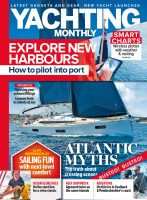
How to pass your Yachtmaster exam
- Chris Beeson
- September 16, 2015
The global standard of sailing qualifications is achievable for any experienced, competent skipper. Tom Cunliffe explains how to pass your Yachtmaster exam
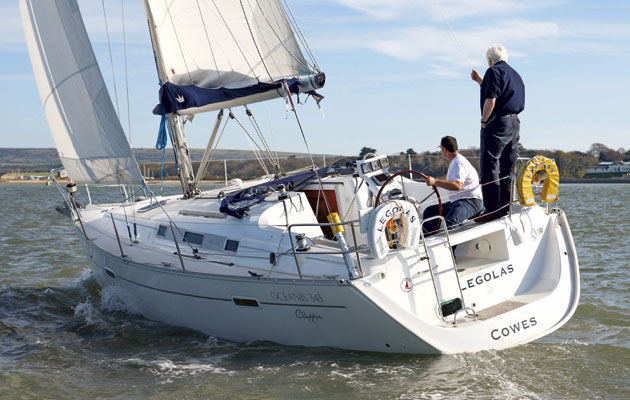
The only certificates accepted by the authorities are those issued after an at-sea examination. To become a fully-fledged Yachtmaster, the practical test is the only one that counts Credit: Graham Snook/YM

Tom Cunliffe is an RYA Yachtmaster examiner. He has passed and failed hundreds of Yachtmaster candidates over the years
We in the UK are exceedingly fortunate. Just as the English language is the best bet for a world traveller, our very own RYA/MCA Yachtmaster qualification happens to be the global standard for sailing. It’s required for anyone planning to become a professional and, thanks to the continuing efforts of the RYA, Brits who sail for leisure still don’t have to carry any proof of competence in home waters. Despite this blessed lack of regulation, the Yachtmaster certificate remains the logical target of many a self-motivated sailor. It also represents the icing on the cake for those looking for the reassurance of an external assessment.
Courses and exams
Yachtmaster training can take place on a boat or in a classroom. A shore-based course, either at desks in a school or via the increasingly popular Internet distance learning programmes, ends with a Yachtmaster theory exam. Success in this will help a student in subsequent qualification upgrades, but it is not officially recognised. The only certificates accepted by the authorities are those issued after an at-sea examination – the Yachtmaster Practical . To become a fully-fledged Yachtmaster, this practical test is the one that really counts.
Yachtmaster Prep

Meteorology matters: a favourite with examiners is to produce a weather map and invite you to analyse it. Be ready and know your subject
This is a non-RYA course and, as such, has no official status or syllabus. However, it is run successfully by many RYA sailing schools to prepare candidates for an examination which generally follows on at the end. Up to four students spend several days together on the boat in which they will be examined. The benefits are that they get to know one another and their yacht under the guidance of a highly qualified Yachtmaster Instructor. The general feeling is that these tutors can’t teach you much you don’t already know in a week, but that they are very good at coaching the best out of those skills you already have. Prep courses are great for brushing up on how to jump through the various hoops an examiner may set up. What they can’t do is make someone who doesn’t have suitably constructive mileage into the confident skipper examiners are looking for.
Coastal or Offshore – what’s my level?
Recently, the old Coastal Skipper ticket has been superseded by the new ‘Yachtmaster Coastal’ certificate. The qualifying mileage for this MCA-recognised qualification is 800, with passage and night-hour requirements being relaxed in comparison with ‘Yachtmaster Offshore’, which keeps its 2,500-mile entry level. Either is a proper Yachtmaster qualification and can be described as such. Only the often-dropped suffix distinguishes the two. The syllabi are identical, the variant is the rigour of the examination. Apply for ‘coastal’ and the examiner, recognising that you have less sea-time, will be more inclined to cut you a bit of slack.
The RYA has noted that most candidates are really only making ‘coastal-status’ passages. In real terms, this includes an annual trip across the Irish Sea, the North Sea or the Channel in a calculated weather window, which is very different from setting off from Ramsgate towards Norway with five days and potentially serious conditions ahead of you. The implications should be clear: unless you need the Offshore ticket for professional reasons, if in doubt, go for Coastal.
Preparing yourself and the boat
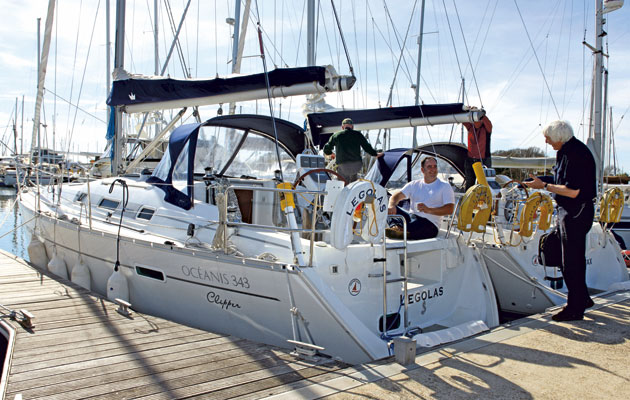
A relaxed candidate with a mug of tea makes a better impression than a harassed-looking one
If you’ve signed on with a sailing school, you’ll be stuck with the boat you’re given. You can be confident that this yacht ticks all the official boxes by being coded for commercial use, but while some are very up-together, others are not. If the boat is generally sloppy and scruffy, you can at least make an effort to stow the mainsheet in a seamanlike manner while you are nominally skipper.

Neatly coiled lines reflect well on the skipper
You can also ensure that fenders are hung at the same level, sharpen up the guardrails and see that things generally look as though somebody knows the difference and cares. Then the examiner won’t hold the ratty lifebuoys and the smelly bilge against you.

Mind that your dress and demeanour don’t make a bad first impression
Try to be ready in good time so that you aren’t involved in a last-minute kerfuffle. If you’re relaxing in the cockpit with a mug of tea when the examiner arrives, he or she will be more impressed than if you’re frantically working out tidal heights and scuffling through the chart table. Wear sensible kit. Don’t worry if it’s not this season’s fashion. My examiner turned up in an old duffel coat back in 1978 and I think I was wearing a canvas smock and a flat cap, but the smock was freshly laundered and the cap was right way round…
The main thing is that you can sail, but an examiner is always pleased to be freed of any hassle with the paperwork. Most of us are no better with admin than you are, so make our lives easy by producing an up-to-date first aid ticket and all the rest, plus a cheque made out to the RYA – not the examiner, perish the thought!
Passage planning

Your passage plan should be realistic. Keep it simple and be ready to adapt and update as things develop
You may be given the opportunity to produce a passage plan before the examiner arrives. If so, make it realistic. Don’t plot every course to the last degree. After all, you don’t know what speed you’ll make or what the wind will really do. Check tidal gates, distances, viable alternatives and the weather. Look at any hazards, sort out a time to leave and have a plan for updating as things develop. That’s about what you’d do if there were no exam, and that’s what I, at least, want to see.
Examination on your own boat
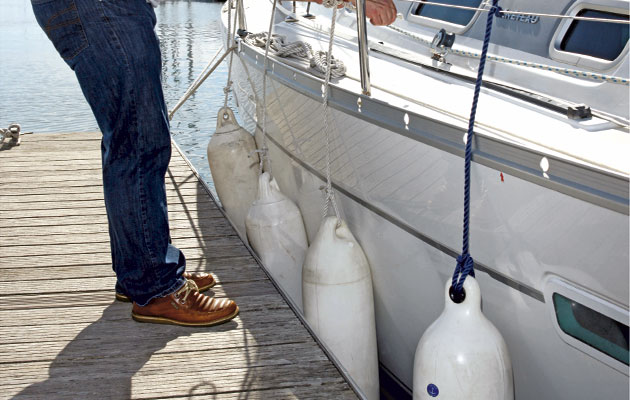
A nicely level line of fenders sends a good signal to the examiner
You don’t have to go to a sailing school to be a Yachtmaster. I love it when a candidate asks to be examined without training on his own boat. Don’t worry if she isn’t coded. There’s no legal requirement that she should be. Most of mine haven’t been either, and I couldn’t care less.
As an examiner, I want to see that your priorities are sound and that you’re thinking clearly and for yourself. On the day, the yacht must be clean, tidy and seamanlike. Waterline crisp, sail covers Bristol fashion, not looking like some poor bird with a broken wing, ropes carefully stowed, a comprehensive chart kit for the waters to be sailed, the makings of a meal plus snacks and, of course, everything that counts should be working.
What the examiner is looking for
Feeling relaxed in close quarters

Competent, confident boathandling counts well in your favour
If there’s one thing that will upset an examiner, it isn’t that you forgot to put on your lifejacket, it’s that he feels insecure when you begin manoeuvring in a marina. Take it from me, there’s nothing worse than sitting at the backstay wondering what you’re going to hit. If the boat slides sweetly out of her berth with everyone knowing what’s required and no shouting, then moves away easily with the examiner confident you’re in charge, that you’ve checked the next alleyway for collision risk, that your choice of speed is sensible and efficient and that it never enters his head to feel anxious, you’re well on the way to a pass after five minutes. No course can teach you this. It can only tick the box confirming you’ve managed it once or twice. The rest is up to you and your sea time.
Wind awareness
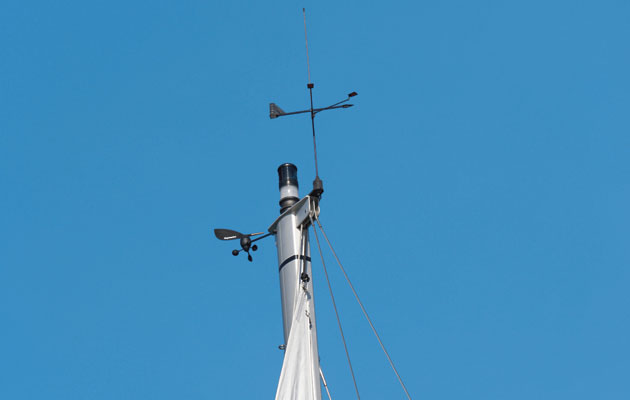
You should always be aware of the true wind direction and how it will influence any manoeuvres
Here’s another subject you can’t learn on a prep course. Knowing where the wind is and how it relates your position to any impending manoeuvres is critical. I often ask a candidate where the wind is coming from when he’s approaching a situation we both know will involve some sort of gyration under sail. If he looks instinctively at the masthead or, worse still, an instrument set to apparent wind, he’s dropped a bagful of points. At this stage, his mind should be setting up where the boat will best be placed to make her critical turns. Apparent wind isn’t going to help him much. What he should be doing is glancing at the water and noting the tiny ripples to assess what the true wind is actually doing. I’m often amazed at how many folk have never been shown how to do this. Racing sailors can handle it in their sleep, because they need to predict windshifts, but cruisers tend to get lazy, so make sure you can read the wind.
Good sailing
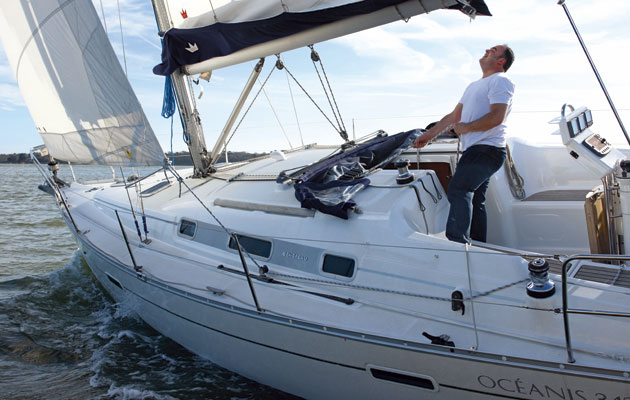
No need for incessant, race-style tweaking, but pay due attention to sail trim while the yacht is under way. If there’s a mainsheet traveller, use it
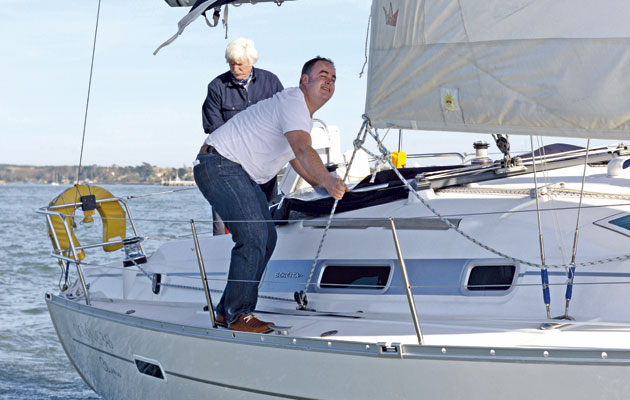
Ensure that the genoa sheet leads are properly positioned for the point of sail you’re on

Lovely: both mainsail and genoa set up with the right amounts of tension and twist
All examiners hate to see a yacht sloppily sailed on passage. Make sure that your crew are using the traveller, that genoa fairleads are properly positioned, that the main is well set up with kicker and mainsheet tension for twist. Above all, do not sail over-sheeted. It’s a dead giveaway that you just haven’t been out there enough yet.
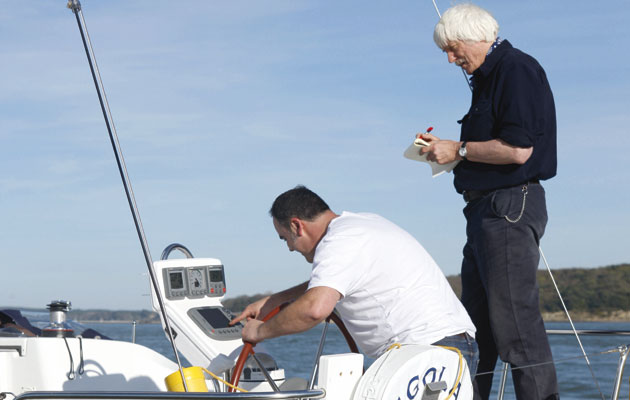
Too much staring at the plotter screen betrays nervousness
In the days before GPS set navigators free, people used to fail exams by what we called ‘sailing the chart table’ rather than skippering the yacht. Assuming the test to be all about some sort of imagined ‘correct navigational practice’, candidates nailed themselves to the navigatorium when they should have been up on deck directing operations and watching out for the ship coming up astern that was suddenly looking bigger every moment. Well, guess what? Nothing has changed. This remains a big problem with neophyte Yachtmasters.
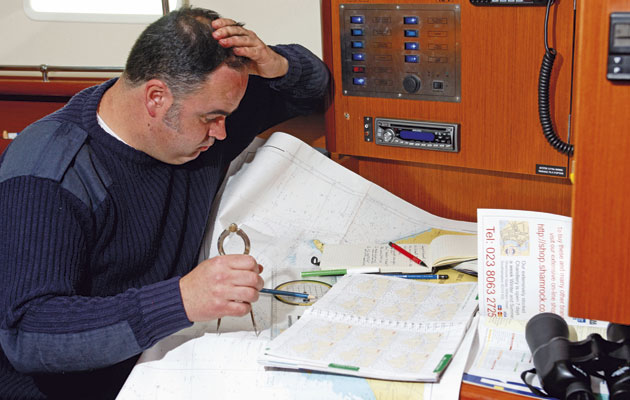
Sail the boat, not the chart table
The secret is to plan well, then nip below every so often on passage to keep an eye on what’s going on in the chart department and whizz back on deck pronto to carry on skippering the boat. I’ll lay a pound to a penny it’s what you do when there’s no examiner on board, so have the confidence to back your own usual practices. This is particularly important at night in crowded waters. An unsuccessful candidate often fails himself by allowing disorientation to creep in, simply by not keeping the true perspective on events, which can only be found on deck.
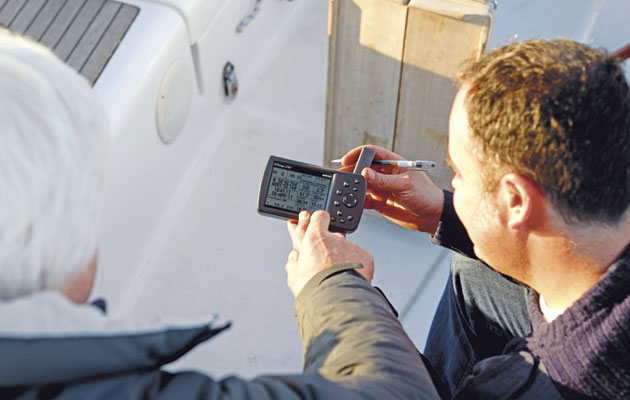
The use of electronic nav-aids such as GPS is not ‘cheating’ – it’s an integral part of navigation
All examiners have their own take on use of electronics. Personally, I want to know my candidate is making modern aids to navigation, including a chart plotter if there one, an integral part of his navigational policy. The idea, as one candidate suggested, that use of GPS is somehow ‘cheating’ is incomprehensible to me. I will almost certainly ask at some stage that the yacht be navigated classically, to see how easy my man is with what, for most people, are now backup skills. If I’m unconvinced by his performance, off he goes to think again.
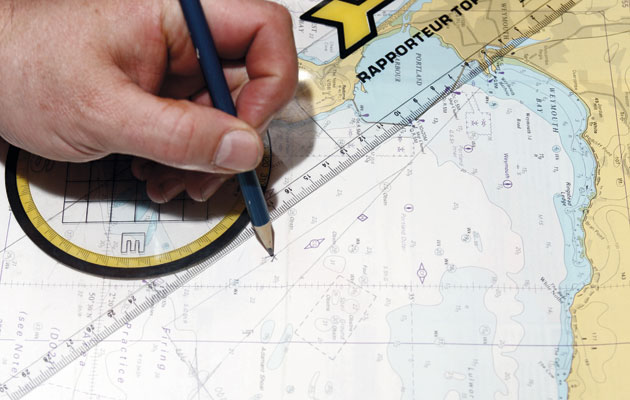
Your chartwork should be fluid and accurate
Skilled chartwork comes with use, and no amount of last-minute swotting can make up for weeks of doing it as a matter of course. Plotting traditional fixes is a good giveaway these days. With GPS all around us, we only do this for real when electronics fail. I’ve seen a person take 15 minutes to select three objects from a background studded with lights, then plot the results. The yacht had moved over two miles in the meantime…

It’s absolutely vital that you maintain a decent logbook during the exam
It’s absolutely vital, whether navigating with a giant chart plotter or a Walker log, that you maintain a decent log book. Without this, if GPS fails for any reason at all, you’re lost, Mate, so is your exam, and quite right too!
Take command
One of the most important questions on most examiners’ private lists is how good the candidate is at taking charge. If he’s managing well, we probably won’t even notice that he’s in command, that his crew all know what’s expected of them and that their skipper is quietly checking that they’re doing it. Good leadership is seldom about barking orders, and never about ignoring all on board, yet leadership is what being a Yachtmaster is all about. First, you must be sufficiently comfortable with your own skill levels not to have to worry about little things like picking up a mooring. Only then can you consider what may go wrong for the poor soul on the foredeck in a gale at midnight.
The classic skills
These are what most people imagine success in an exam is based upon. Actually, these basic skills merely help an examiner build up an overall picture of the candidate. It’s generally not a hanging matter if one manoeuvre goes a bit haywire. Even a grounding is often more interesting for what the candidate does about it than for the fact that it has happened. After all, nobody is perfect, especially under the stress of an exam.
Man overboard
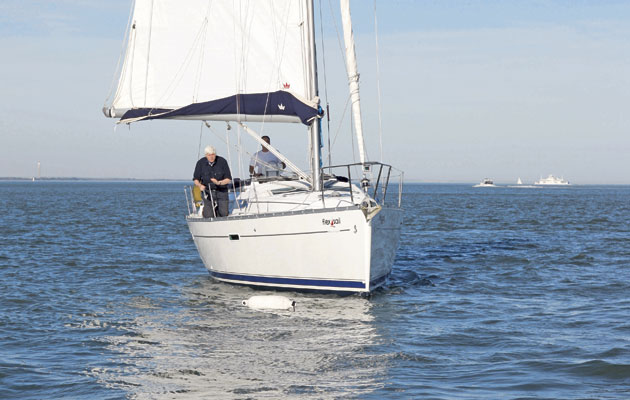
An effective, confidently executed man overboard drill speaks volumes about a candidate’s boat-handling ability but it’s not necessarily curtains if the manoeuvre goes a bit haywire
Errors in principle are not popular with examiners. Mistakes under pressure may sometimes be forgiven, and man overboard is a case in point. If the boat sails past the dummy with her mainsail full and the examiner asks, ‘What went wrong?’ It won’t get you much of a score if you reply, ‘I was going too fast.’
‘Candidate’s speciality, stating the bleeding obvious,’ the examiner will note on his pad, and move on, downhearted.
However, if you say, ‘I’m kicking myself because I was too far upwind and couldn’t de-power the main. I tried to get onto a close reach but I misjudged my approach,’ he’s more likely to take a lenient view – especially if you’ve opted for ‘Coastal’.
Securing the yacht alongside
When I was examining instructors regularly, I’d often sail up to Poole Quay (a tidal wall) shortly before closing time. I’d hop off the boat as soon as she touched the piling, saying, ‘You sort her out, skipper, I’m off for a quick pint.’ I’d then do just that. When I returned 10 minutes later, if the yacht was neatly snugged down with four lines ashore, ends on the dock, a fender board in place, sails neatly stowed and all hands below cooking and relaxing, the guy was in good shape for a pass. If I found discussions on deck about whether to ‘hand the end back for a spring’, and people blundering about in the dark, things didn’t look so bright for our hero. Have a system and know how to execute it.
… and don’t forget
Mooring and anchoring

Mooring and anchoring under sail should present no challenge to the aspiring Yachtmaster. When in doubt, drop the mainsail
These are Day Skipper skills that should pose no threat to a Yachtmaster candidate. Under sail, just remember first to assess whether the wind is with or against the tide. If you get lucky and it’s against, drop the main and arrive stemming the stream, spilling under headsail or creeping along under bare poles. If wind and tide are at all ambiguous, never forget the old adage – when in doubt, drop the mainsail.
Meteorology
As forecasting has become more comprehensive and accessible, I’ve noticed a reduction in candidates’ capacity to understand what’s going on and to read a bulletin creatively. Anyone who can’t describe the typical cloud sequence on a North Atlantic depression gets nil points from me, and failure to understand the basics of air masses is going to run up a black mark too. A favourite with examiners is to produce a weather map and invite their Yachtmaster to analyse it. Be ready, and know your subject.

Tom sees no reason not to have a chart in the cockpit, but some examiners disapprove of it. Be ready to justify your choice
Many candidates produce excellent pilotage plans for entering a strange harbour. I’m happy with that, and most examiners love it. Personally, I prefer to sketch a few notes on the actual chart and have it in the cockpit held down with a winch handle, yet I’ve met examiners who’d be horrified to see a chart on deck at all. So there you have it. Do what suits you best, then be ready to justify your choice. Actually, this advice is good across the board. The examiner wants to see what you really do, not some fantasy you’ve cooked up because you think he might like it. That is a weak candidate’s policy and it often backfires.

No shortcuts here, you just need to know your stuff – and finding the time to learn isn’t difficult
So far as the MCA is concerned, this is the crunch. Examiners are encouraged to demand high standards in this subject, and there’s no reason for a candidate, knowing full well he is to be put on the griddle, not to have the regulations burned into his heart. The best way to be exam-proof is to invest in A Seaman’s Guide to the Rule of the Road, available for modest money from all good chandlers or Bookharbour.com. Place it prominently in the heads some months before the exam and devote five minutes of the shining hour each day to digesting its wondrous contents. The book makes it easy and there’s no excuse for disappointing the Board of Trade!
For all the latest from the sailing world, follow our social media channels Facebook, Twitter and Instagram .
Have you thought about taking out a subscription to Yachting Monthly magazine?
Subscriptions are available in both print and digital editions through our official online shop Magazines Direct and all postage and delivery costs are included.
- Yachting Monthly is packed with all the information you need to help you get the most from your time on the water.
- Take your seamanship to the next level with tips, advice and skills from our expert skippers and sailors
- Impartial in-depth reviews of the latest yachts and equipment will ensure you buy the best whatever your budget
- If you are looking to cruise away with friends Yachting Monthly will give you plenty of ideas of where to sail and anchor

- Start Yachting
- Competent Crew
- Dayskipper Practical
- Dayskipper All in one
- Coastal Skipper
- Yachtmaster Offshore Preparation
- Milebuilding Cruises
- The ICC (International Certificate of Competency)

Professional Yachtmaster Offshore Commercial Training Programme
- 1:1 Tuition
- Sailing Trips
- Own Boat Tuition
- Dayskipper Theory
- Online Dayskipper Theory
- Yachtmaster Theory
- Online Yachtmaster Theory
- Online VHF Course
- Sea Survival
- ISAF Offshore Safety
- 2024 Round Ireland Yacht Race
- The 2023 Rolex Fastnet Race Expedition
- Corporate Yacht Racing Club
- Exciting Yacht Racing
- Relaxed Yacht Cruising
- Yacht Charter
- Booking Form
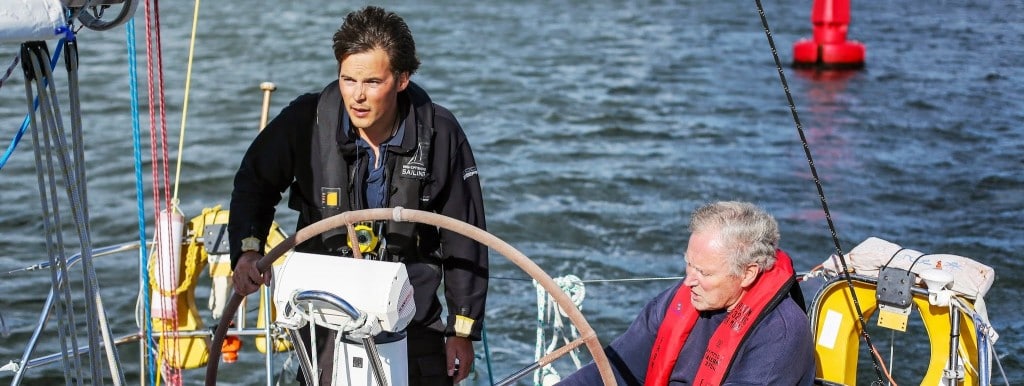
Kristian Aderman a Pro Yacht Racer from Sweden being examined by RYA Examiner John Roberts earlier this year
Train to Work in the Sailing Industry
14 weeks of practical training, next course : spring 2024, starts mon 19th february 2024.
For Course Prices Scroll Down or Click Here
Below is a brief outline of the course content. Please contact us for a full description of the course program.
We would be delighted to have a sit down meeting with you over coffee to discuss your suitability for this program and how it can be tailored to suit your prior sailing experience. If you are booking from abroad we would be delighted to arrange a skype conversation to discuss the program with you.
Introduction
This course is designed to take the complete sailing novice to become a professional sailor in the sailing industry in an intensive accelerated course over fifteen weeks. The course culminates in the Yachtmaster Offshore Exam by an independent RYA Yachtmaster Examiner. This is a 10 hour practical and oral examination on all aspects of sailing a yacht in difficult circumstances. Provided you are hard working we will have you fully prepared and confident of passing the exam over the 3 months. We have run 11 successful Professional Yachtmaster Programs since the schools opening in 2011 and have almost 100% success rate in that every student has passed the exam first time after our training program. This is largely to do with having a small number of students and being able to focus on each students own weaknesses leading up to the exam. We have successfully trained students in the past who have gone on to work all over the world in different sectors of the sailing industry, from charter base managers, to delivery skippers, to Yachtmaster Instructors to yacht brokers to Riggers. We have developed contacts within the sailing industry over the past 10 years which you can call upon to help you achieve your first job in your new career within the yachting industry. The course is geared towards a career in the yachting industry, but we have a variety of students from guys in their 30s and 40s looking for a career change, to school leavers looking for an alternate second career before attending university to newly retired people looking to change their approach to their own sailing, a to finally sail in a professional confident way.
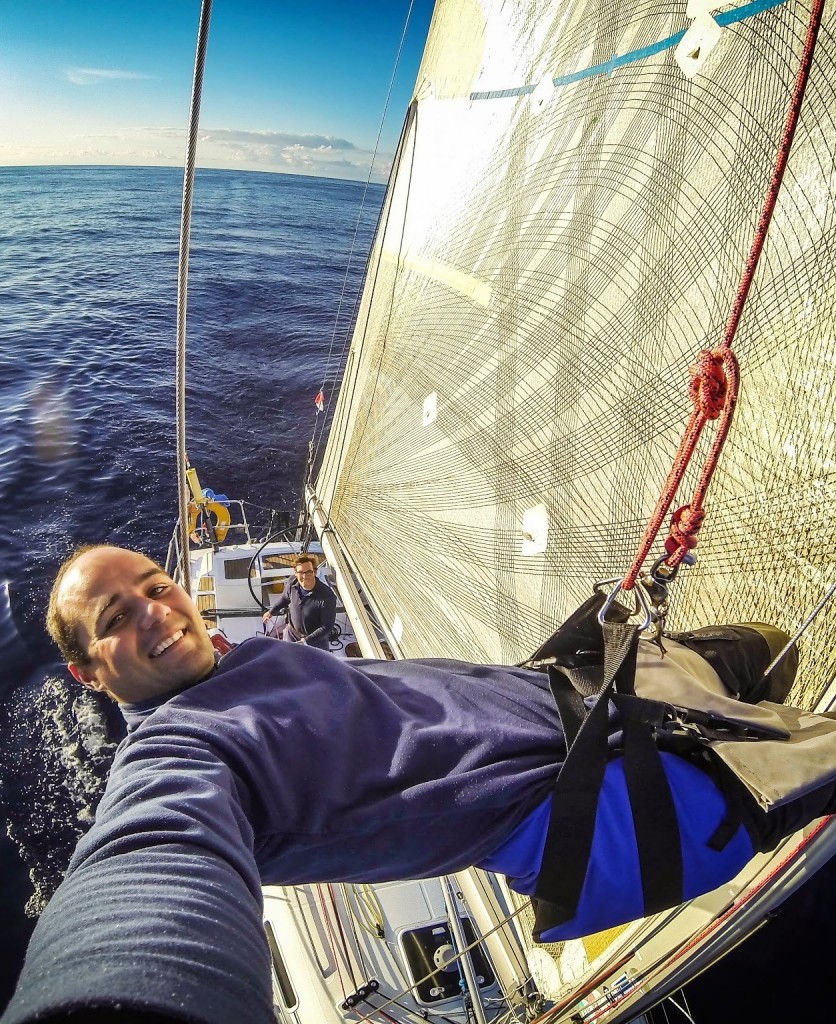
The course is divided into 3 modules of four to five weeks in duration. Students can enter the course program at different stages depending on their previous sailing experience and the cost of the course will be pro-rated accordingly. Please consult us on this. Many fast track courses are run by different sailing schools in the Med. Some advertise courses that are only 10 weeks long and at very low prices. These are soft courses in the sunshine with little or no wind. Exams are almost always conducted under the same conditions. Our experience of these schools has been shabby yachts and poor quality tuition. At Irish Offshore Sailing we will train you to cope with challenging weather confidently using a modern offshore yacht with the most up to date navigational equipment. These yachts enter the Fastnet Race and Round Ireland Yacht Race every year, so they are extremely well equipped.
Our Commitment to You
At Irish Offshore Sailing we draw upon a team of expert instructors with over 10 years training students on the Professional Yachtmaster Scheme. We have put a course program together not just to get you to pass your Yachtmaster exam, but to make you into a competent confident professional skipper. We see time and time again within the industry, sailors barely meeting the grade and delivering yachts by the seats of their pants. Our aim is to train you to a standard where we would trust you to deliver our yachts in the dead of winter, and rest assured that the yacht will arrive in pristine condition. Students who train and sail in Ireland and the UK during the Winter and early Spring, experience strong winds, heavy swells and other difficult conditions. These difficult training grounds challenge and drive students to excel and ultimately produce a higher calibre of skipper. At Irish Offshore Sailing, we run a professional, well structured course designed to meet your needs. We operate from our course from our base at Dun Laoghaire Marina using our two Jeanneau Sunfast 37 foot yachts “Desert Star” and “Sherkin” and our classroom facilities at the Royal Irish Yacht Club. Dublin Bay provides and incredible training ground for our students with a large tidal range, shallow harbours, commercial shipping, and offshore winds which allow us to continue sailing even under heavy wind conditions. The protection of the outer harbour in Dun Laoghaire allows us to sail even in the most challenging of winds, when any other school would have to have a day in the classroom.
Below is a brief outline of the course structure for our 2024 Spring Course, our Autumn course will be very similar:
Module 1: February 2024
Week 1: Competent Crew (5 days) (Mon 19th – Fri 23rd February 2024)
Week 2: Dayskipper Theory (5 days) (Sat 24th – Sun 25th Feb & Fri 1st – Sun 3rd March 2024)
Week 3: Skills and Drills (3 days) (Mon 26th Feb – Wed 28th Feb 2024)
Week 4: Dayskipper 1 (Navigation and Pilotage) (5 days) (Mon 4th – Fri 8th March 2024)
Week5: Dayskipper 2 Mon 11th – Thurs 15th March 2024 ( 4 days)
VHF SRC (1 day) (Sun 10th March 2024)
First Aid (1 day) (Sat 9th March 2024)
24 days training incl. First Aid and VHF SRC
4 days break: 1600 Thurs 14th March – 0930 Tues 19th March 2024
1 days break: 1600 Wed 28th Feb – Fri 1st March 0930 2024
Module 2: March 2024
Week 1: Yachtmaster Theory (6 days) (Tues 19th – Sun 24th March 2024)
Week 2: Milebuilder Passage 1 (6 days) Northern Ireland (Mon 25th March – Sat 30th March 2024)
Week 3: Coastal Skipper 1 (4 days) (Mon 1st – Thurs 4th April 2024)
ISAF Offshore Safety Course (2 day) (Sat 13th – Sun 14th April 2024)
Week 4: Milebuilder Passage 2 (6 days) Irish Sea (Sat 6th – Fri 12th April 2024)
Week 5: Coastal Skipper 2 (5 days) (Tues 15th – Fri 19 April 2024)
30 days training – including ISAF Offshore Safety Course
1 day Break: 1600 Sat 30th March- 0900 Mon 1st April 2024 (1 day)
1 day break: 1600 Thurs 4th April – 0900 Sat 6th April 2024 (2 days)
7 days break: 1600 Sun 19th April – 0900 Mon 27th April 2024 (7 days)
Module 3: May 2024
Week 1: Milebuilder Passage 3 (7 Days) ( Sat 27th April – Fri 3rd May 2024) Ireland South Coast
Week 2: Yachtmaster Preparation 1 (4 days) (Mon 6th May – Thurs 9th May 2024)
Week 3: Yachtmaster Preparation 2 (4 days) (Mock exams, all elements revised) (Sat 11th – Tues 14th May 2024 )
Yachtmaster Offshore Examination (2 days) (1400 Tues 14th May – 1300 Thurs 16th May 2024 Approx.)
17 days incl. Yachtmaster Offshore Exams
2 days break : 1600 Fri 3rd May – 0900 Mon 6th May 2024
1 day break : 1600 Thurs 9th May – 0900 Sat 11th May 2024
This course is comprised of 71 Days of Tuition and Examination
The RYA Yachtmaster Offshore Exam is organised on the last two days of the course.
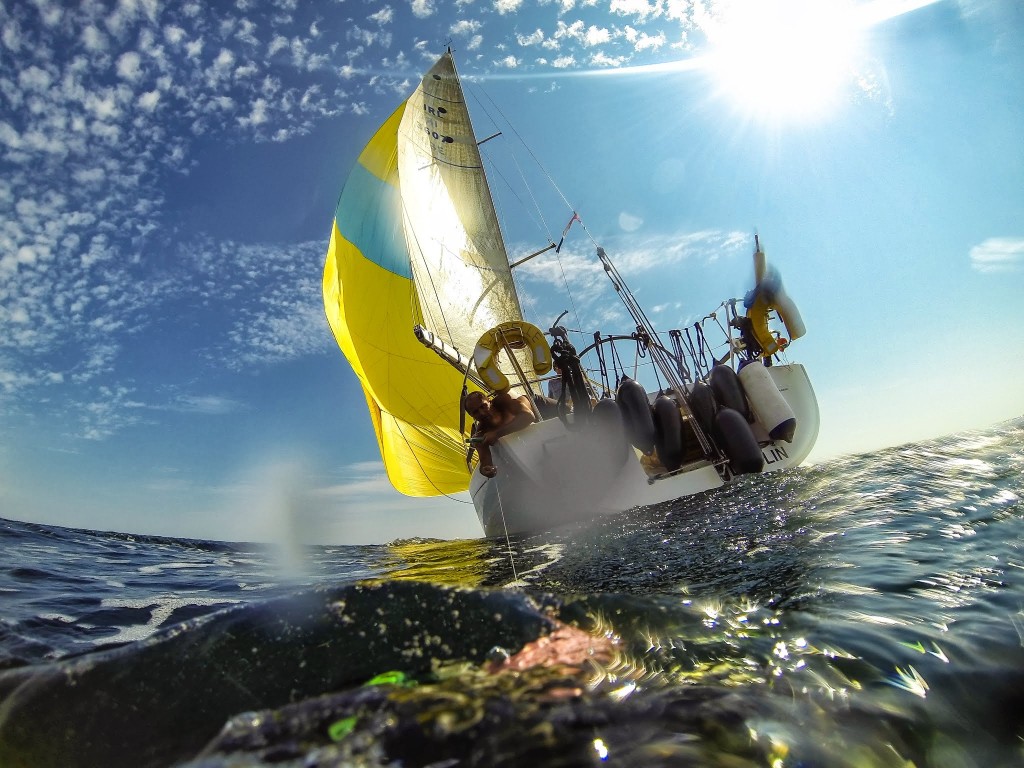
Professional Yachtmaster Training Program Prices
The 14 Week Course €10,950
One Module €5,350
Two Modules €8,500
Whats included:
- All food on board during practical courses on the yacht
- Waterproofs
- All accommodation during practical yacht courses
- All our ordinary practical courses run from Monday 09:00 to Friday 16:00. Our milebuilders begin at 0900 on the first day and finish approx 1600 on the last day, all shorebased courses begin at 0930 each day and finish approx 1630.
Whats not included: Food and accommodation is not provided during the shorebased courses. Air BnB’s, and hostels are available with good weekly rates and all the home comforts. Shorebased courses comprises of 15 days of the overall course length. Neither accommodation nor food is provided during the weekends between courses.
€85 SRC exam and license fee for the the SRC course
Yachtmaster offshore examination fee of £240
Examiners travel expenses ( Approx €120 per student depending on candidates)
are not included in the course fee.
Offshore Yacht Sailing Personal Insurance (€80 – €120)
This insurance is compulsory to participate in our mile building trips.
State Grants
Some students have in the past qualified for small state grants to attend our courses as the ISA Coastal Skipper Practical Course falls under the national qualification fetac scheme. Please contact us for further details about obtaining a grant while attending this course.
Additional Gear and Advice
We strongly advise students to purchase their own sailing boots and gear before the commences. Contact us for advice on this. We don’t believe in flashy prospectuses to hook you in. We want to meet you for a coffee, or have a lengthy phone conversation, answer your questions, explain the course in great detail, learn about your background and your motivation for doing the course and assess your suitability for the course before your place is accepted. We monitor your progress very carefully during the course, and a high degree of self motivation, self learning and a good patient nature is required.
Previous Experience
While previous experience is not required before booking, but we do strongly advise that you attend at the very least a start yachting weekend or competent crew course before making a decision to book onto this intensive full time sailing course. The optimum is that each candidate would have around 500 miles of sailing experience prior to coming onto the sailing course. This means that you would have an understanding of what its like to sail a yacht offshore and at night before coming on the course. It also takes the pressure off your attendance on the course, if you are sick for one week, then you may miss achieving your target mileage of 2,500 miles which is required to sit the Yachtmaster Offshore Exam, if you start the course with zero miles under your belt. We can advise you on how best to get these few days of training before the course begins when we meet for a coffee to show you the school and discuss the course.

- Full Terms and Conditions

Chieftain Training
RYA & STCW Courses – Sail, Power, Super-Yacht & Workboat
What is an Ocean Yachtmaster
What is an ocean yachtmaster and how to become an ocean yachtmaster.
The RYA/MCA Ocean Yachtmaster Certificate of Competence (CoC) is the highest level certificate in the RYA scheme. It can be used by blue water leisure sailors and by commercial skippers and crew. Under the MCA Codes of practice the Ocean Yachtmaster Certificate of Competence holder, (with relevant commercial endorsement etc.) can skipper a vessel;
- Up to 200 tonnes
- Carrying up to 12 passengers
- Anywhere globally (i.e. beyond the 150 miles from a safe haven limit imposed upon a Yachtmaster Offshore).
Furthermore the Yachtmaster Ocean CoC is the minimum requirement for certain officer positions on board larger (over 200 tonne) yachts.
There are 5 stepping stones to becoming an Ocean Yachtmaster CoC holder. Steps 1-4 can be taken in any order although the order presented below is the most logical. Step 5 can only be completed once the first 4 steps have been completed.
- Yachtmaster Offshore Certificate of Competence
RYA Ocean Yachtmaster Shorebased Course
- Qualifying Passage
- Sights and Compass Check by sextant at sea
RYA/MCA Ocean Yachtmaster Certificate of Competence Oral Exam
It is technically possible to take the Ocean Yachtmaster CoC Oral exam without having previously completed the RYA Ocean Shorebased Course but not advised as it involves an additional written exam and you would require all of the relevant knowledge taught on the course. Further information is detailed the relevant 5 steps below;

Becoming a Yachtmaster Offshore Certificate of Competence Holder
While you can proceed towards the RYA Ocean shorebased course and the Ocean practical steps (qualifying passage and sights) you can not proceed to the Oral exam without first holding the Yachtmaster Offshore Certificate of Competence.
This is a 40-hour theory course. It can be taken;
- Over 5 consecutive days face to face in the classroom
- Over 13 evenings face to face night school in the classroom
- Over 5.5 days face to face using zoom
- Online in your own time.
Whichever format you choose the course culminates in a written paper.
The course concentrates on astro navigation, i.e using a sextant and the heavenly bodies (sun, moon, stars and planets) to fix your position. The course also devotes time to ocean voyage planning and worldwide meteorology.
Full details can be found at Ocean Yachtmaster Shorebased Course

While you don’t strictly need to be a Yachtmaster Offshore before taking the Ocean Yachtmaster Shorebased Course , the following knowledge is assumed before the Ocean Shorebased course starts;
- Use of plotting instruments (plotter, dividers etc.)
- Latitude and longitude, knots and nautical miles
- Variation and deviation
- Application of UT, DST
- 2/3 Point fixes and angles of cut
- Dead Reckoning / EP (and ideally the Running Fix)
- GPS and other electronic nav aids
- Coastal/offshore voyage planning
- Sources of forecast information
- Synoptic charts
- Low pressure systems
- Coastal communications /distress comms. (Navtex, VHF, EPIRBs and SARTs)
Is the Ocean Shorebased Written Exam Invigilated?
If you take a face to face Ocean Yachtmaster Shorebased Course then the written paper is invigilated and marked by your Instructor.
If you choose to take the Online or Webinar RYA Ocean Yachtmaster Shorebased Course then face to face invigilation may be required (see table below).
What qualifies as a RYA Yachtmaster Ocean Qualifying Passage?
A qualifying passage must have been taken in the last 10 years. Sea time prior to this date does not qualify. The passage must meet the following requirements
Ocean Candidate’s Role On Board
For your qualifying passage you should be either the skipper or mate in sole charge of a watch. You must have been fully involved in the planning of the passage, including selection of the route, the navigational plan, checking the material condition of the vessel and her equipment, storing with spare gear, water and victuals and organising the watch-keeping routine.
If the skipper changes role at any point during the passage, then neither skipper can use the passage as a qualifying passage.
It is our opinion that it is impossible for multiple Ocean Yachtmaster candidates to use the same passage as their qualifying passage as you can not all fit the definitions above. More than two candidates would be highly unlikely more than three impossible.
Ocean Qualifying Passage
The passage has several minimum requirements
- Departure and arrival ports must be more than 600 miles apart by the shortest navigable route
- Minimum non-stop distance of 600 miles must have been run by the log
- At least 200 miles of that passage must have been more 50 miles from land (or charted objects capable of being used for navigation/position fixing, such as an offshore oil rig)
- The vessel must have been at sea continuously for at least 96 hours
Passages such as recognised races which may not comply exactly with these requirements may be submitted to the RYA for consideration before the voyage.
Examples of Ocean qualifying passages (non stop passages)
- Trans-Atlantic ARC Rally (Canary Islands to St. Lucia/Caribbean)
- Between Azores and anywhere in mainland Europe/UK or the Canary Islands
- Between Bermuda and any of; Bahamas, Caribbean, Canada or most of USA (parts of North Carolina fall below the requirements)
- Between Bermuda and the Azores or Europe
- Solent/UK to Cascais/Portugal,Algarve, Southern Spain or Gibraltar (assuming you follow the rum line or stay offshore when crossing Biscay)
- Trans Pacific Passage (excluding passages between Alaska and Russia, on or close to the Bering Sea)
- Atlantic Germany (Elbe) to Scotland, where the 200 mile run is impossible due to oil rigs)
- Gibraltar to Northern Lanzarote where the mileage falls slightly below 600
- RORC Fastnet Race which does not follow the shortest navigable route or have the 200 mile run
- Northern Spain to Majorca, although well over 600 miles, very little of the passage is over 50 miles from land
If you still are not sure about whether a passage qualifies, then check out the RYA’s definition of a qualifying passage .
Vessel used for Ocean Qualifying Passage
The yacht (or vessel) must be;
- Minimum size 7m, LWL
- Maximum size 500 tonnes (If the vessel is over 24m LOA then the candidate would need to hold an appropriate Certificate of Competence to act as Officer of the Watch on the passage).

Sights and Compass Check by Sextant at Sea
You are required to provide your Ocean Examiner with a minimum of’
- Sun Run Mer Pass (or sun run sun, sun run planet etc.)
- Compass check carried out using the bearing of the sun, moon, a star or planet
Sights are usually taken on the qualifying passage however in some circumstances (such as lots of cloud cover) this is not possible. If sights have been taken on another passage then the following requirement apply to this passage.
- The vessel must of been out of sight of land and charted objects when the sights are taken/used.
- The vessel must be on a passage by the shortest navigable route. You can not therefore simply head offshore take sights and return to departure port.
We always advise candidates to present the examiner with more than the minimum required sights. If you present the examiner with additional sights and your preferred set suffers from errors you still stand a chance of passing the exam.
Prior to the exam you will need to provide the examiner with;
- A narrative account of the planning and execution of the qualifying passage providing all relevant details.
- Navigational records, completed on board a yacht on passage, out of sight of land showing that the candidate has navigated the yacht without the use of electronic navigational aids. The records must include as a minimum, planning, reduction and plotting of a sun run meridian altitude sight and a compass check carried out using the bearing of the sun, moon, a star or planet.
During the oral exam you will be required to answer questions on all aspects of ocean passage making in a yacht, including passage planning, navigation, worldwide meteorology, crew management and yacht preparation, maintenance and repairs.
If you already hold the RYA Ocean Shorebased Course Certificate , the exam typically takes 1.5 hours although examiners can continue questioning considerably longer. If you do not hold the Ocean Shorebased certificate then your exam will take considerably longer as you will also have to take a written test.
Does the Ocean Yachtmaster Qualifying Passage have to be on the same type of vessel as I took my Yachtmaster Offshore Exam on (i.e. power or sail)?
Most candidates will qualify in the same kind of vessel as they passed their Offshore exam, however it is possible to qualify as a Yachtmaster Offshore (power) and then compete the Yachtmaster Ocean requirements on a sail vessel (or vice versa).
I hold a OOW (Yacht 3000gt) CoC but not a Yachtmaster Offshore CoC
If you passed the Yachtmaster Coastal Certificate of Competence Exam instead of the Yachtmaster Offshore Certificate of Competence Exam as your entry requirement into the OOW 3000 CoC then you will not be eligible to hold the Yachtmaster Ocean Certificate of Competence. On passing the oral exam you will receive a pass confirmation certificate.

How do I commercially endorse the Yachtmaster Ocean Certificate of Competence?
Those working under the MCA Codes of practice will require a commercial endorsement. Information can be found at RYA Commercial Endorsements . If you already hold a commercial endorsement on your Yachtmaster Offshore CoC then it is simply transferred across.
Do I require any other certificates to operate commercially as an Ocean Yachtmaster?
To operate a coded sailing yacht in Category 1 or 0 waters (i.e. Over 60 miles from a safe haven) you will additionally require a RYA Diesel Certificate .
To operate the mandatory GMDSS radio equipment on a commercial vessel in Sea Area A2 (more than about 35 miles offshore) you will require either a Long Range Certificate (LRC) or STCW General Operator Certificate (GOC) .
To skipper a coded vessel in Category 1 or 0 waters (i.e. Over 60 miles from a safe haven) you will additionally need to hold STCW Proficiency in Medical First Aid and Proficiency in Medical Care, unless there is a current qualified nurse practitioner (or higher) on board.
If working aboard a vessel in Category 1 or 0 waters (i.e. Over 60 miles from a safe haven) you will need a ENG1 Medical certificate. The alternatives which are suitable further inshore such as ML5 Medical Certificate are not valid in category 1 and 0 waters.
Share this:
RYA Certificates of Competence, Part 5 - Yachtmaster Ocean
Sailing qualification recognised around the world as a clear mark of your sailing ability.
By Marcin Wojtyczka
In this article in series about RYA certifications we reveal how to pass the RYA Yachtmaster® Ocean Certificate of Competence.
The RYA Yachtmaster® Ocean Certificate of Competence is proof that you have the knowledge and experience needed to skipper a yacht on passages of any length in all parts of the world. The RYA Yachtmaster Ocean is the highest certification level at RYA.
The holder of a Yachtmaster Ocean qualification should be competent to skipper a yacht of up to 24 metres LOA (up to 200gt) anywhere in the World (Category 0 waters - unlimited).
The assessment is done by oral interrogation (~1.5 hours). You also need to pass the written (~1.5 hours) exam if you did not complete the Ocean Theory course, complete a qualifying passage, and prepare narrative account and navigational records. You have to stand to attention before seasoned most likely old RYA-appointed salt and convince him that you sailed as skipper or first mate and that you know the job. To be honest, there is probably no better way of doing it.
Don’t treat the examination just as an exam. This is a great opportunity to get feedback on your skills and become a better sailor.
Requirements
You can find the official requirements here .
- Hold an RYA Yachtmaster® Offshore Certificate of Competence
- Have completed a qualifying passage which meets the following criteria: You were fully involved with the planning of the passage, including a selection of the route, the navigational plan, checking the material condition of the yacht and her equipment, spare gear, victuals and organising the watch-keeping routine. Throughout the passage you must have acted in a responsible capacity either in sole charge of a watch or as a skipper. Qualifying passage should be non-stop by the shortest navigable route with no change of skipper. During the qualifying passage a minimum non-stop distance of 600 miles must have been run by the log, the yacht must have been at sea continuously for at least 96 hours and the yacht must have been more than 50 miles from land or any charted navigational object while sailing a distance of 200 miles. You can find the exact requirements of the qualifying passage here . If you have any doubts about whether your chosen route qualifies, you can always contact RYA at [email protected] During the qualifying passage you should take some sights to prove that you are actually capable of navigating out of sight of land by astro navigation. If circumstances prevent astro sights from being taken on the ocean-qualifying passage you can also take them on another shorter passage. You just have to make sure to be enough far from shore so that the sights are taken out of sight of land.
Preparation
Before taking the oral exam, it is recommended to take Yachtmaster Ocean Theory course . If you complete the course, you will be exempted from the written examination.
Please also take a look at our routes . On all our offshore passages we are navigating using celestial navigation. Some of our passages qualify for the RYA Yachtmaster Ocean certification where you can be a watch leader to meet the qualifying passage requirements. Many of our participants passed the prestigious RYA Yachtmaster Ocean exam and keep returning year after year to us in order to become yet more confident and experienced. Our practical on-the-water training builds confidence, teaching you everything from basic terminology and safety tips to how to skipper a yacht and manage its crew.
Exam Syllabus
During the oral exam, the questions should generally be related to your qualifying passage but may also refer to longer passages if needed to find out if you are capable of an ocean crossing. You may be required to answer questions on all aspects of ocean passage-making in a yacht, including passage planning, navigation, worldwide meteorology, crew management and yacht preparation, maintenance and repairs.
After booking the exam and at least 1 week before the exam date you must provide the examiner with:
- A narrative account of the planning and execution of the qualifying passage.
- Navigational records, completed on board a yacht on passage, out of sight of land, showing that you navigated the yacht without the use of electronic navigational aids. As a minimum, this should include the planning, reduction, and plotting of a sun-run-meridian altitude or sun-run-sun sight and a compass check carried out using the bearing of the sun, moon, star or planet.
The examiner will not be hard on you if you provide a good narrative account and lots of navigational records. You should show him or her that you thought about many aspects of voyage planning and execution, and that you care about the safety of the yacht and the crew. You will definitely fail if you show a cavalier altitude.
The narrative should include the following:
- Brief description of the chosen vessel and suitability for the voyage
- Crew selection
- Pre-checks on the condition of the yacht, including hull, rigging, engine, electrics and fittings checks
- Navigational passage planning: route selection, sources of information to decide on a strategy, expected and possible durations of the passage if no wind/rig failure/divert to the port of refuge etc.
- Navigational equipment: electronic and manuals
- Weather: source of information pre-departure, weather forecasting sources on passage, actual weather experienced
- Harbours planned: pilotage, reporting, berthing, customs and immigrations procedures
- Ports of refuge
- Watchkeeping rota
- Consumables provisioning: victualling (water and food) and fueling/bunkering - estimating daily usage, the amount carried, allowance for delays, calms and emergencies, preparation for what-if scenarios (e.g. contamination of water, fridge failure etc.)
- Consumables monitoring en route: fuel, gas, food, water, battery
- Methods of charging batteries, battery capacity and electrical consumption calculations
- Medical kit carried and preparation for medical emergencies (e.g. availability of suitable courses)
- Standing orders
- Safety briefing conducted
- Routine equipment checks and maintenance, precautionary replacements
- Drills practices before departure and during the passage
- Fire precautions
- VHF / HF / MF channels monitored
- Communications equipment carried
- Position reporting to shore stations
- Navigational hazards including shipping lanes and shallows
- Expected shipping traffic and other vessels encountered (e.g. fishing fleets)
- Use of courtesy ensigns and Q flag
- Emergency (contingency) plans: MOB, rig failure, hull breach, steering failure, port/hatch failure, engine failure, abandon ship, divert to the port of refuge, heavy weather preparation and tactics, emergency repairs (e.g. jury-rigging, repairing damage to the hull, jury-steering)
- Spare gear and tools required, carried and used
- Deck safety: clipping on and numbers of the crew on deck
- Charts and publications used
- Copy of ship’s log and charts
- Navigation by sextant: all written sight reduction, compass check and plotting sheets completed at sea (not tidied up ashore)
- Procedure for cleaning and securing the yacht at the end of the passage
Here you can find an example of RYA Yachtmaster Ocean narrative and navigational records for passage from Gibraltar to Tenerife prepared for my exam.
The written exam will include questions on celestial navigation (sights and sight reduction) and worldwide meteorology.
If you hold the RYA Yachtmaster Ocean shorebased course completion certificate you will be exempted from the written examination.
Learning materials
- Celestial Navigation in practice - Astro navigation primer.
- Celestial Navigation - With the Sight Reduction Tables with Pub. No 249 - This book gives the clearest explanation of how celestial navigation works and how to use it without bogging down in theory.
- How to use sextant (PDF) , Video
- RYA Certificates of Competence
- Certificates

Join our newsletter to get the news about new routes

RYA Yachtmaster of the Year announced
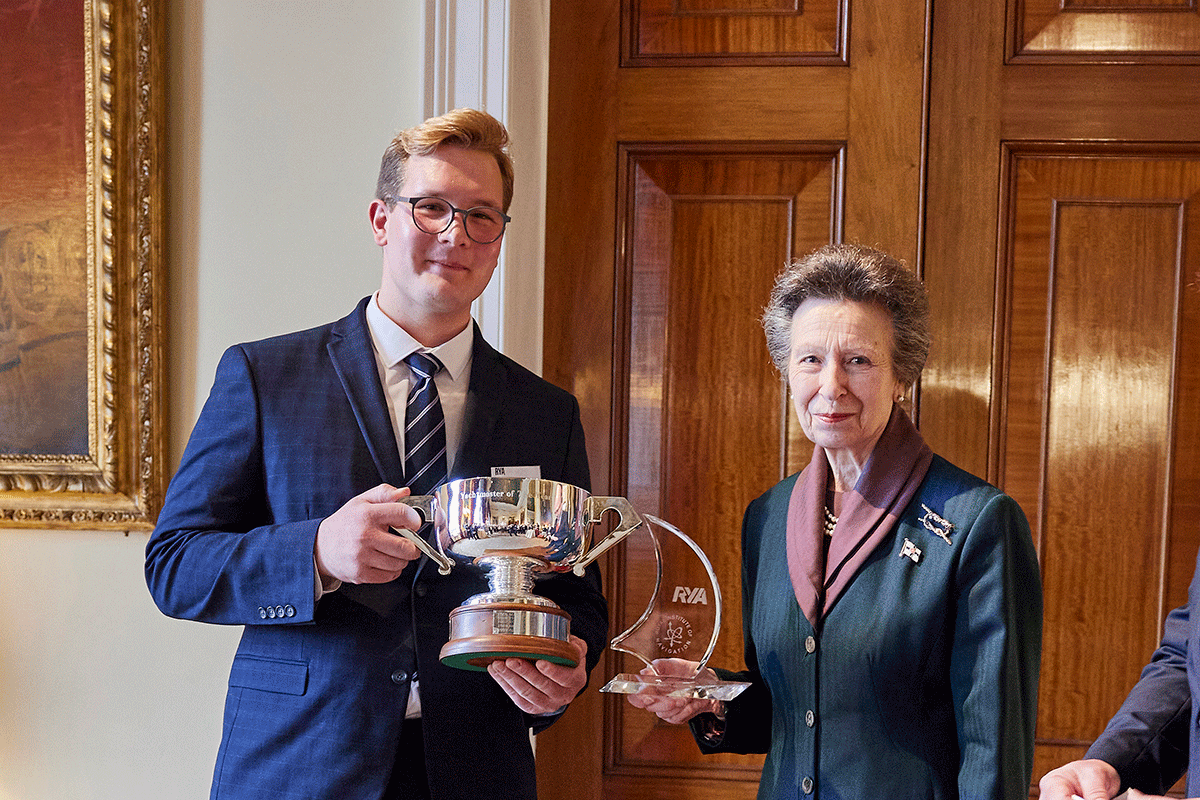
More news from All At Sea

Enjoy up to 50% ownership onboard ‘Project Ocean’ this summer
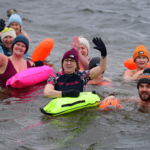
Cold water dipping launches at Lisvane and Llanishen Reservoirs
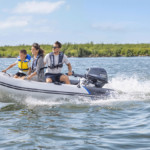
Yamaha offers up to £380 additional trade-in bonus on new portable or versatile outboards
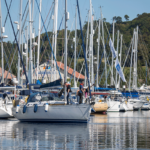
British Marine Lobbying Success

ePropulsion sustainably mobilises hundreds of Bamboo Rafts in Guilin Li River
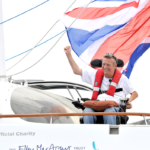
QUADRIPLEGIC ADVENTURER GEOFF HOLT ANNOUNCES CHARITY CHALLENGE

VETUS Responds to Customer Concerns Amidst Ongoing Economic Uncertainty
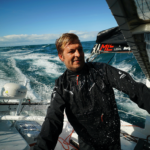
From office to ocean: the story of Swiss skipper Oliver Heer, Vendée Globe 2024 candidate
Privacy overview.
City Council Candidate Profiles: Bryce Blankenship

Leave a Reply - Cancel Reply
Save my name, email, and website in this browser for the next time I comment.
This site uses Akismet to reduce spam. Learn how your comment data is processed .
- Certificates of Competence
Qualifying passages
Definitions.
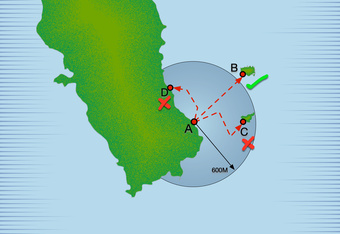
- Skipper: The skipper is the person nominated and responsible for the planning and execution of a passage including vessel and watch management. The skipper is not necessarily the most experienced or qualified person on board but must be the person with responsibility for the safe execution of the passage. If the skipper's role is transferred to another person at any time during a passage then neither person can claim to have skippered that passage.
- Mate: For the purpose of qualifying passages, a mate is any person on board who has sole responsibility for managing a navigational watch during a passage. They must be actively engaged in the planning and execution of a passage.
- Tidal: An area is deemed tidal if published stream, current or tidal range data is available, the influence of which is significant enough to require the effects to be taken into account to plan and execute a safe and efficient passage.
- Days on board: A day on board or as skipper is a period of eight consecutive hours living on board, the majority of which the vessel should have been at sea. Periods of less than eight hours cannot be aggregated to make up eight hours. Only one eight-hour period may be counted in any 24 hour period.
- During a qualifying passage there should be no change of skipper or mates. Trainee skippers undertaking 60 mile passages are strongly advised to obtain a Coastal Skipper qualification first.
Additional for RYA Yachtmaster Ocean:
- Candidates on Ocean qualifying passages must have acted in a capacity of either mate or skipper throughout the entire passage.
- If circumstances prevent astro sights being taken on the ocean qualifying passage candidates may take their sights on another shorter passage. Such sights must be taken whilst the vessel is on passage and out of sight of land or charted objects capable of being used for navigation/position fixing. The examiner will determine whether the candidate is competent at astro navigation.
- Qualifying passages, sea time and days as skipper must take place on a suitably sized vessel appropriate to the discipline being examined, as detailed below.
Suitability of vessels for exam pre-requisites for RYA Yachtmaster Coastal, Offshore and Ocean exams:
For vessels over 24m LOA greater than 500gt please contact RYA Training 2 .
- Up to 50% of the minimum requirement. Evidence of status on board required by testimonial or seaman's discharge book.
- For vessels up to 200gt candidates must hold a commercially endorsed RYA Yachtmaster Offshore or higher Certificate of Competence. For vessels over 200gt candidates should hold an STCW Officer of the Watch (Yacht 3000gt) Certificate of Competence or higher to be able stand navigational watches during the passage. Please see MSN 1858 for further information.
- Contact [email protected] if your sea time is on a yacht greater than 24m and 500gt.
Streamlined online exam payment service
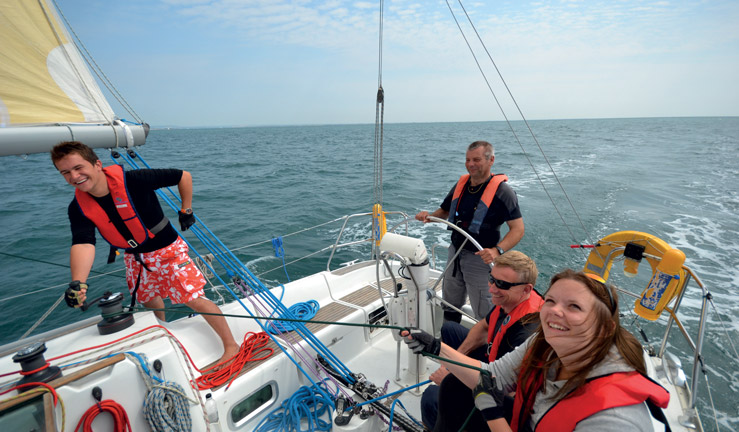
The Royal Yachting Association (RYA) has made waves of progress with their recently upgraded online RYA exam payment service . Now, candidates can conveniently pre-pay for a range of exams such as the RYA Yachtmaster Coastal, Offshore, Ocean, and Powerboat Advanced courses and more!
Efficient application process for candidates
After payment, exam candidates will receive a personalised PDF application form via email with a unique code. However, for those candidates who still want to pay on account or by cheque, can still do so by obtaining application form via the RYA Document Finder .
In order to verify their identity, candidates are now required to present a valid photographic identification for exams. Accepted forms of identification include a driving license or passport.
Enhanced examiner verification and accountability
The RYA Yachtmaster and RYA Powerboat Advanced application forms have also been revamped with a verification section. Examiners will now have a designated space to sign, confirming the candidates' eligibility, identity and their readiness to conduct the exam.
The latest print run of the SRC course pack will also feature improvements to promote transparency and accountability for the examination process. For more information and guidance on RYA Training, visit RYA Training Support .
For signs of cryptocurrency laundering, look closely at Moscow firms, report says
By Joe Warminsky
February 14, 2022

Moscow-based businesses appear to be handling much of the money laundering of cryptocurrency payments that come from global ransomware activity and other forms of cybercrime, according to a report from crypto-tracking company Chainalysis .
The analysts focused on several dozen companies with a presence in Moscow City, the Russian capital’s skyscraper-packed business district. In any given quarter, “illicit and risky” blockchain addresses account for between 29% and 48% of all funds received by those cryptocurrency businesses, the report says. That traffic, including legitimate crypto transactions, can sometimes be more than $1 billion in a quarter, Chainalysis says.
“A huge amount of cryptocurrency-based money laundering, not just of ransomware funds but of funds associated with other forms of cybercrime as well, goes through services with substantial operations in Russia,” Chainalysis says in the Monday blog post, which is based on its upcoming “2022 Crypto Crime Report.”
The company defines “risky or illicit” addresses as those “connected to entities that, while not necessarily inherently criminal, are frequently linked to criminal activity, such as high-risk exchanges and mixers,” meaning the kinds of services that try to hide the tracks of cryptocurrency payments’ origins.
The Moscow City company Garantex, for example, handled cryptocurrency worth about $2.1 billion from the beginning of 2019 until the end of 2021, and more than $645 million of that was associated with addresses Chainalysis deems illicit. Another business, Bitzlato, handled more than $2 billion in crypto overall during that period, with more than $966 million worth of it coming from illicit addresses.
Some of the companies studied “are big enough that despite receiving millions of dollars’ worth of funds from illicit addresses, those funds only represent 10% or less of all cryptocurrency they receive. Those instances could be attributed to the business’s lack of knowledge, rather than purposeful criminal activity,” Chainalysis says. “But for other Moscow City cryptocurrency businesses, illicit funds make up as much as 30% or more of all cryptocurrency received, which suggests those businesses may be making a concerted effort to serve a cybercriminal clientele.”
Chainalysis did not analyze the potential effects of Russian law enforcement’s January sting against the REvil ransomware gang , noting that analysts have said the arrests “may not indicate true commitment to fighting ransomware.” Russian agencies also have cracked down on dark web cybercrime forums recently. Those actions came against the backdrop of Russia’s troop buildup outside Ukraine, and experts have said Russia could be just trying to show that its agenda isn’t completely unaligned with Western interests.
U.S. law enforcement recently made its biggest arrest yet in a cryptocurrency money-laundering case: A New York couple, including one spouse who drew attention for her rap performances as “Razzlekhan,” were arrested last week on charges of conspiring to launder $4.5 billion in crypto stolen from the Bitfinex exchange in 2016.
Chainalysis has had contracts with several U.S. federal law enforcement agencies and financial regulators, including the FBI and the Internal Revenue Service.
More Like This
Sec’s breach disclosure rule raises concerns about tipping off hackers to flawed systems, scammers target cloudflare ceo with silicon valley bank-themed spearphishing , intelligence officials warn pace of innovation in ai threatens us, top stories, health care groups resist cybersecurity rules in wake of landmark breach, training days: how officials are using ai to prepare election workers for voting chaos, confronted with chinese hacking threat, industrial cybersecurity pros ask: what else is new , more scoops.

NYC couple pleaded guilty to money laundering in Bitfinex hack

DOJ charges two Russian nationals with historic Mt. Gox hack
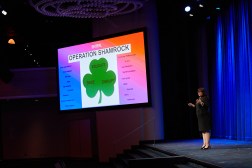
This Bay Area prosecutor wants to help police nationwide take on ‘pig butchering’ scams
Police shut down cryptocurrency mixer linked to laundering more than $3 billion in criminal funds, russian ransomware money launderer pleads guilty to funneling ryuk payments, russian founder of a cryptocurrency exchange known for funneling ransomware profits arrested, report: illicit cryptocurrency activity reached all-time high in 2022, latest podcasts.

How Troy Hunt knows if you’ve been hacked and Washington tries to understand AI
Why pig butchering is the worst kind of online scam, how the fbi fights ransomware.

Kiersten Todt on the cybersecurity policy landscape; AI training for election officials
- FCC approves cybersecurity label for consumer devices
- Top cybersecurity officials stress more funding for federal agencies
- Biden's budget proposal seeks funding boost for cybersecurity
- CISA: No credible election threats, and no contact with social media companies
- Apple rolls out quantum-resistant cryptography for iMessage
- White House ramping up efforts to combat deepfakes
- Google: Governments need to do more to combat commercial spyware
- Meta’s Oversight Board slams company policies for manipulated media
- Russian hackers accessed Microsoft source code
- Ransomware group behind Change Healthcare attack goes dark
- Predator spyware infrastructure taken down after exposure
- ALPHV website goes down amid growing fallout from Change Healthcare attack
Geopolitics
- Biden executive order seeks to cut China off from Americans’ sensitive data
- Iran hacking group impersonates defense firms, hostage campaigners
- Five Eyes nations warn of evolving Russian cyberespionage practices targeting cloud environments
- Leaked documents show how firm supports Chinese hacking operations

IMAGES
VIDEO
COMMENTS
RYA Examiners are typically selected from the pool of experienced Yachtmaster Instructors (YMI) or Powerboat Trainers (PT) after having been identified as potential Examiner candidates during the 5 yearly revalidation courses by appropriately qualified instructor trainers. On an annual basis the recommendations are reviewed and a shortlist of ...
The RYA Yachtmaster® Ocean is experienced and competent to skipper a yacht on passages of any length in all parts of the world. Full details of the exam syllabus and requirements are shown in the RYA Yachtmaster Scheme Syllabus and Logbook (G158), which is available from the RYA webshop. The exam consists of an oral and written test.
RYA Yachtmaster Offshore practical exams can be taken under sail or power and your certificate will be endorsed accordingly. The candidate or a training centre provides the boat and the RYA provides an examiner. Note: All qualifying sea time and passages must be gained on vessels appropriate to the type of exam i.e. gained in sailing vessels ...
The Yachtmaster Ocean exam has remained as an oral test following an ocean passage. RYA instructors and examiners are qualified following a training and assessment course. The RYA also publishes books on every aspect of the syllabus and many other nautical subjects, and has become Europe's largest nautical publisher.
Tom Cunliffe is an RYA Yachtmaster examiner. He has passed and failed hundreds of Yachtmaster candidates over the years. We in the UK are exceedingly fortunate. Just as the English language is the best bet for a world traveller, our very own RYA/MCA Yachtmaster qualification happens to be the global standard for sailing. It's required for ...
Interview with an RYA Yachtmaster examiner, to help you prepare for your RYA Yachtmaster practical exam. Link for the courses mentioned in the video are belo...
Yachtmaster Exam - Man Overboard RYA Method. Your examiner will expect you to a take charge, not to loose sight of the MOB (fender), to get back to it safely without endangering other crew and to get the boat stopped alongside the casualty with the casualty somewhere safe (i.e near the leeward shroud on a sail boat and not too close to the ...
The gold standard. The RYA Yachtmaster® Certificate of Competence is often the ultimate aim of aspiring skippers. It is a well known, highly respected qualification worldwide, proving your experience and competence as a skipper. Unlike other qualifications in the cruising programme, there is no formal training course to become an RYA Yachtmaster.
The course culminates in the Yachtmaster Offshore Exam by an independent RYA Yachtmaster Examiner. This is a 10 hour practical and oral examination on all aspects of sailing a yacht in difficult circumstances. Provided you are hard working we will have you fully prepared and confident of passing the exam over the 3 months. We have run 11 ...
There are 5 stepping stones to becoming an Ocean Yachtmaster CoC holder. Steps 1-4 can be taken in any order although the order presented below is the most logical. Step 5 can only be completed once the first 4 steps have been completed. Yachtmaster Offshore Certificate of Competence. RYA Ocean Yachtmaster Shorebased Course.
Application for a Yachtmaster Ocean exam. Cancellations. If you decide to cancel your exam, please directly contact the Training Centre you booked with or your examiner. If you booked your exam via the online service and have not yet been provided with the examiners contact details but wish to cancel, please contact [email protected]. Exam ...
The candidate must provide the examiner with the following information 48 hours prior to the exam: ... Please note: Only those who hold the RYA Yachtmaster Offshore Certificate of Competence are eligible to receive the RYA Yachtmaster Ocean Certificate of Competence on passing the oral exam. Those holding OOW (Yacht 3000gt) will receive a pass ...
The RYA Yachtmaster® Ocean Certificate of Competence is proof that you have the knowledge and experience needed to skipper a yacht on passages of any length in all parts of the world. The RYA Yachtmaster Ocean is the highest certification level at RYA. The holder of a Yachtmaster Ocean qualification should be competent to skipper a yacht of up ...
Nominations for the coveted award are put forward each year by the RYA's worldwide team of RYA Yachtmaster Examiners. In recognition of the achievement, winners are presented with txhe RYA Yachtmaster® Trophy, donated by the Royal Institute of Navigation. Freddie expressed: "I am shocked and delighted to be honoured with the award. It wasn ...
RYA Yachtmaster Offshore practical exams can be taken under sail or power and your certificate will be endorsed accordingly. The candidate or a training centre provides the boat and the RYA provides an examiner. Note: All qualifying sea time and passages must be gained on vessels appropriate to the type of exam i.e. gained in sailing vessels ...
Full details of the exam syllabus and requirements are shown in the RYA Yachtmaster Scheme and Logbook (G158) available from the RYA webshop. RYA Yachtmaster Coastal practical exams can be taken under sail or power and your certificate will be endorsed accordingly. You or a training centre provide the boat and the RYA provides an examiner.
After 12 years of living here yet still not feeling his strong appreciation for Moscow start to subside, Blankenship finally decided to make himself a candidate for Moscow City Council, and did so on the basis of wanting to be involved and invested in making decisions that can yield a locally substantial impact and ensure that Moscow continues ...
The gold standard. The RYA Yachtmaster® Certificate of Competence is often the ultimate aim of aspiring skippers. It is a well known, highly respected qualification worldwide, proving your experience and competence as a skipper. Unlike other qualifications in the cruising programme, there is no formal training course to become an RYA Yachtmaster.
By Washington Examiner. March 6, 2013 9:38 am. M OSCOW (AP) — Moscow's highest court panel is examining an appeal by three members of the punk band Pussy Riot against their conviction for an ...
inspector / plans examiner at City of Moscow Moscow, Idaho, United States. 1 follower 1 connection See your mutual connections. View mutual connections with Adam ...
The examiner will determine whether the candidate is competent at astro navigation. Qualifying passages, sea time and days as skipper must take place on a suitably sized vessel appropriate to the discipline being examined, as detailed below. Suitability of vessels for exam pre-requisites for RYA Yachtmaster Coastal, Offshore and Ocean exams:
Enhanced examiner verification and accountability. The RYA Yachtmaster and RYA Powerboat Advanced application forms have also been revamped with a verification section. Examiners will now have a designated space to sign, confirming the candidates' eligibility, identity and their readiness to conduct the exam.
Moscow-based businesses appear to be handling much of the money laundering of cryptocurrency payments that come from global ransomware activity and other forms of cybercrime, according to a report from crypto-tracking company Chainalysis.. The analysts focused on several dozen companies with a presence in Moscow City, the Russian capital's skyscraper-packed business district.